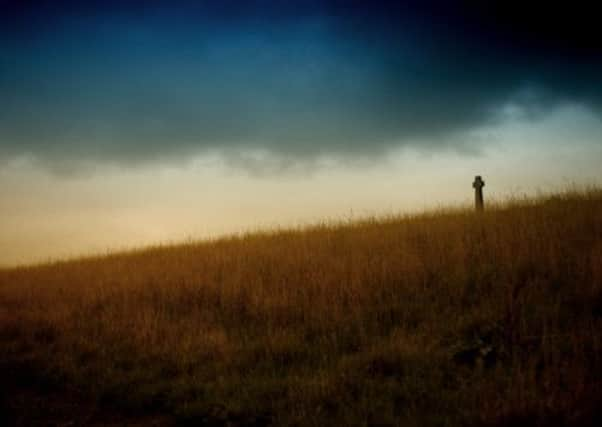100 Weeks of Scotland: Flodden


On this day, half a millennia ago, this field was not deserted. It was littered with the mutilated bodies of many thousands of men, most of them Scottish. I stand in the exact centre of where the Battle of Flodden took place. Centuries quiet now, but still there is a vague feeling that something happened here. There were people here to commemorate the battle earlier but they have gone and now only the crows and myself remain.
To me, as a child, Flodden was mentioned in the same hushed tones as the Darien disaster, or the 1978 World Cup in Argentina. It seemed to be one of those ‘national tragedies’ that have to be endured but were really best not mentioned. I knew very little about the Battle of Flodden other than that it was a very dark event, in a country with a good many other dark events.
Advertisement
Hide AdVery little, it seems, has changed in the landscape. The steep slope, which rises to the south and where, with ill-judged enthusiasm, the Scottish pikemen came thudding down to meet both their fate and an English Billhook, is as it was. The boggy ground where the two armies thundered together may have been drained but other than that most of the geography is the same. A couple of forlorn flags - a muddy saltire and a more resplendent St George’s Cross - hang limply in the region where most of the killing would have taken place.
A King died a few feet away from where I stood – James IV of Scotland, who now holds the dubious honour of being the last King to die in battle in Great Britain, an honour he will probably keep for quite some time to come. He needn’t have died, as he needn’t even have been here. The Scots only invaded England to honour the Auld Alliance with France, who were (as usual) at war with the English. The serpentine mess of treaties and alliances that seemed to cause more fighting than they ever helped avoid led the two armies to this place, on a September day, 500 years ago.
The Scots suffered a heavy defeat, with her King and many of her nobles killed. It is not too controversial to say that this defeat helped lead the way to the Union of Crowns, and then eventually the Union of the Parliaments in 1707. All actions have consequences and if James IV had stayed at home perhaps 500 years on we would not be in the middle of an independence campaign, having never lost it in the first place.
Who knows. we might even have won the World Cup in 1978...
• Alan McCredie began the ‘100 weeks of Scotland’ website in October last year, and it will conclude in Autumn 2014. McCredie’s goal is to chronicle two years of Scottish life in the run-up to the independence referendum.
McCredie says ‘one hundred weeks...’ is intended to show all sides of the country over the next two years. On the site, he says: “Whatever the result of the vote Scotland will be a different country afterward. These images will show a snapshot of the country in the run up to the referendum.
“The photos will be of all aspects of Scottish culture - politics, art, social issues, sport and anything else that catches the eye.”
Follow the project at www.100weeksofscotland.com. You can also follow Alan on Twitter.
• All pictures (c) Alan McCredie/ 100 weeks of Scotland